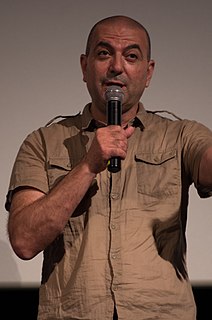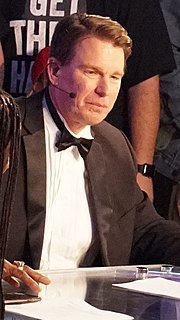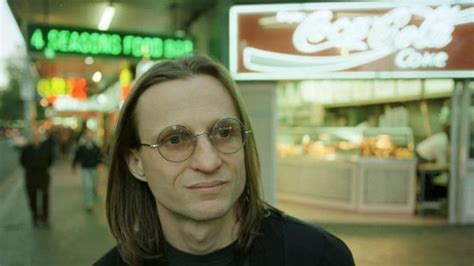A Quote by Stromae
I think it's about the feeling more than a language. And I think that we and every culture in the world has to keep their own language just to bring something else, something different, and show a different vision of the world, actually. And that's why I'm trying to keep my language.
Related Quotes
Politics is different than movies. Politics are controlled by leaders. Leaders of every country have different interests. And they try to explain to their people why they should take one side or the other side. But in the movie its doing the opposite. It allows you to have a Universal Experience. You don't watch it as politics but as a movie. You don't have different reactions all over. It's so universal a language. It's not a political language serving a political agenda. The language of cinema is a world language. With the Hollywood movie, it brings about the same reaction wherever it goes.
One way to think about what psychedelics are is as catalysts for language development. They literally force the evolution of language. You cannot evolve faster than your language because the language defines the culture of meaning. So if there's a way to accelerate the evolution of language then this is real consciousness expansion and it's a permanent thing. The great legacies of the 60's are in attitudes and language. It boils down to doing your own thing, feeling the vibe, ego-trip, blowing your mind.
One of my favorite literary theorists, Mikhail Bakhtin, wrote that the defining characteristic of the novel is its unprecedented level of "heteroglossia" - the way it brings together so many different registers of language. He doesn't mean national languages, but rather the sublanguages we all navigate between every day: high language, low language, everything. I think there's something really powerful about the idea of the novel as a space that can bring all these languages together - not just aggregate them, like the Internet is so good at doing, but bring them into a dialogue.
Most people, if they think at all about the dictionary, think of it as this fixed object given to us from on high. It is the thing that legitimizes language and makes language real. You never think that it's actually compiled by living, breathing nerds like me. When you realize that it's compiled by people, it becomes a different thing, a different kind of document.
There is something false in this search for a purely feminine writing style. Language, such as it is, is inherited from a masculine society, and it contains many male prejudices. We must rid language of all that. Still, a language is not something created artificially; the proletariat can't use a different language from the bourgeoisie, even if they use it differently, even if from time to time they invent something, technical words or even a kind of worker's slang, which can be very beautiful and very rich. Women can do that as well, enrich their language, clean it up.




































